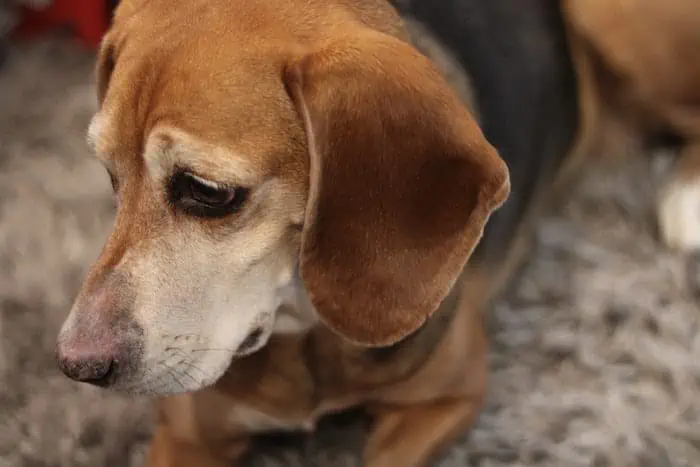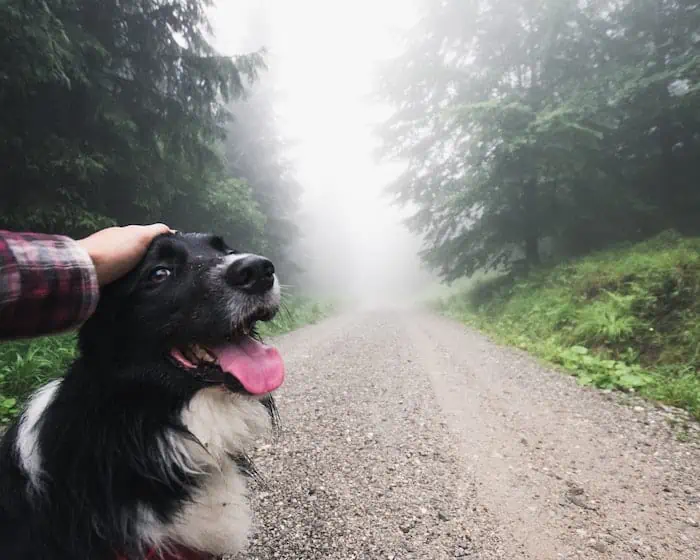13 Reasons Why Your Dog Pees After a Bath
Few things interrupt the peaceful relationship you have with your pup like urine difficulties. Random urination in dogs can be attributed to many causes, but here in this article, we are only focusing on why dogs pee after a bath.
There are both normal and abnormal causes for a dog peeing after a bath. Normal causes include their fight or flight response being triggered, excitement, and engaging in their regular house training habits when needing to urinate. However, abnormal causes of a dog peeing after bathing include various medical and behavioral issues.
Let’s discuss all these reasons in detail.
Normal Causes of a Dog Peeing After a Bath
- In most cases, vets suggest that bathing your dog for a long time can activate the fight and flight response in a dog, which leads them to pee after a bath. This is normal for some dogs, but it varies among different dog breeds.
- Sometimes, dogs get extremely excited if they are in the bath for a long time or getting bathed by their favorite person. Due to that overwhelming excitement, they pee after bathing in response, similar to how young puppies still being house trained may accidentally pee out of excitement when seeing their favorite human come home.
- Finally, if you train your pup to potty or pee in a specific place, they will generally avoid peeing during a bath due to proper training. However, when the bath is complete, they will then go to that instructed area and relieve themselves.
Abnormal Causes of a Dog Peeing After Bathing
Abnormal causes of a dog peeing after bathing include various medical and behavioral issues. Here are some that you should be aware of.
Medical Causes
1. Diabetes
Diabetes causes the canine body to make unhealthy use of its sugar supply, often known as glucose. When there is an inadequate or improper amount of insulin being produced by the body, any surplus glucose will leak out into the urine and cause excessive urination. This will frequently happen after a bath if the dog has diabetes and is due to the glucose imbalance mechanism within that dog’s body.
The following are some of the most prominent symptoms of diabetes:
- Urinating more frequently than normal
- Drinking more water
- Having a leaner body
- Bigger appetite
The possibility of your dog having diabetes can be determined by blood and urine testing, both of which your veterinarian can perform. The most typical treatments for diabetes are changes in food and exercise routines and injections of insulin.
2. Urinary Incontinence
Urinary incontinence is a condition in which your pooch has the involuntary tendency to leak pee. This might be the causal factor if your pup is going to the bathroom frequently. It is also possible that they are leaking pee in odd areas, such as where they are sleeping or peeing immediately after bathing, which would be a cause for concern. In the case of urinary incontinence, your veterinarian will examine your dog’s blood and urine to determine the root of the problem.
The most prevalent cause of urine incontinence in dogs are the following:
- Urethral sphincter insufficiency is a significant cause of urinary incontinence in female canines. Their sphincter weakens to the point that it can no longer prevent urine leakage.
- It’s possible that a male pup’s prostate might cause urinary incontinence.
- Puppies and younger dogs may have a congenital disability that affects their urinary tract.
- A spinal condition that causes nerve damage can result in the dog losing control of his or her urinary system.
- Urinary obstruction that results in leaks can afflict dogs of any age. This might cause the dog to have accidents.
3. Kidney Disease
Toxins are eliminated from the body via urination after being removed from the blood by the kidneys. Additionally, kidneys help maintain healthy blood pressure and stop the loss of fluids. If a dog’s kidneys are having trouble maintaining proper water levels, this may increase the need to drink water and urinate more frequently. Kidney illness is a common cause of frequent urination.
Kidney illness can be diagnosed by blood and urine testing at your local veterinary clinic. The degree of any kidney illness determines how it should be treated. However, a healthy diet, effective stress management, and drinking lots of water are all treatments that can help cure renal disease.
4. Urinary Tract Infection (UTI)
Any dog can acquire a UTI. There is a higher risk of infection in specific breeds of dogs and in female dogs in general. Breeds such as the Shih Tzu, Poodle, and Cavoodle fall into this category. Urinary tract infections (UTIs) are frequently brought on by bacteria that have infected the region through excrement or other debris. Having a UTI can lead your dog to pee immediately after bathing.
The following is a list of symptoms that are typical of a urinary tract infection in a dog:
- Bloody urine
- More frequent urination
- Consuming far more water than normal
- Fever
- Licking the posterior and the urine orifice
- Pain associated with urination
- Incontinence of the urinary system
In order to diagnose a UTI, your pet’s vet will almost certainly collect a urine sample. If a urinary tract infection has occurred, your veterinarian will recommend antibiotic treatment. Luckily, this type of infection is not usually serious if it is caught and treated early.
5. Cushing’s Disease

Cushing’s disease is characterized by abnormally high cortisone levels, with cortisone being a hormone normally generated by the adrenal glands. The symptoms of Cushing’s disease, often referred to as hyperadrenocorticism, tend to become increasingly pronounced throughout the course of a patient’s lifetime. The symptoms of this illness are pretty similar to those of the conditions that were covered before, such as increased thirst, frequent urination, a greater appetite than usual, and muscular weakness. If your pup is struggling with Cushing’s disease, it may be possible that he or she may pee after bathing and running.
Tests of the pup’s blood and urine are necessary for the initial diagnosis of Cushing’s disease. Hormone screenings are required afterward to confirm a diagnosis if the tests show any signs of being abnormal. Each screening method has its own advantages and disadvantages. Therefore, it is essential to discuss which tests your veterinarian will carry out so you know what to expect.
6. Urinary/Bladder Stones
Urinary stones, also known as bladder stones, are formed when the various minerals that are present in your pet’s urine join together to form stones. These stones are able to develop anywhere in the urinary tract, including the bladder, renal tubes, urethra, and ureter. Renal stones may cause your dog to pee abnormally after bathing (may even cause a few uncontrolled drops or even pressurized urine to come out when a small stone breaks).
Urinary stones and UTIs have very similar characteristics, and veterinary intervention is required to treat this condition. The following are some of the other symptoms of urinary/bladder stones you can keep an eye out for:
- Not having enough energy
- A decreased desire to eat
- Abdominal pain
Urinary stones are typically treated surgically, while specific diets and beverages may be able to dissolve some of the stones in other cases. After the stones have been extracted, they are examined and cataloged in order to ascertain the root of the problem. In order to stop further accumulation, your veterinarian will probably recommend that you feed your dog a special prescription diet.
If your dog has a history of developing persistent urinary stones, their veterinarian may recommend that they follow a special diet for the remainder of their life. This is especially true for dogs such as Dalmatians.
Behavioral Issues

After your veterinarian has ruled out any medical issues, the other possible reasons why your dog is peeing after a bath are most likely due to a behavioral issue.
Some of the following behavioral issues might be leading your dog to urinate after bathing:
- A lack of adequate house training in the first place may lead your pup to urinate after bathing or even do so during the bath itself. Try to properly house train your canine companion so that they know the appropriate time and place to relieve themselves.
- Another cause may be because of the weather. Oddly enough, it’s possible that your dog will urinate immediately after bathing when it’s storming outside. It’s possible that this is a learned behavior, in which case, you’ll need to teach them not to do it. Many dogs are fearful of storms due to the noises that occur, so be sure to comfort and help calm and train your dog to avoid undesirable urination.
- Dogs, particularly male dogs, often engage in a behavior known as “territory marking” in order to mark their territory. To mark their territory, dogs often pee whenever this instinct comes into play. It is possible that your dog sees another dog in his place or territory, and after bathing or even another water-based activity like playing or swimming in a pool or the ocean, he immediately wants to come back out and mark his territory to show the other dog that this is his place.
- A stressed dog may pee immediately after bathing. It may be the stress of the bath itself (for those who dislike water) and may even be in reaction to receiving a punishment of some sort for misbehaving during a bath. Stress and anxiety are serious medical conditions that need to be discussed with your animal’s veterinarian as soon as possible.
Visit your local veterinarian if you notice that your dog is urinating more often, especially after bathing. It is critical to address your dog’s urine difficulties as soon as possible, preferably before the associated medical or behavioral concerns become more severe.
See Also:
Can I Bathe My Dog Twice a Week?
Do Dogs Sleep in Their Own Poop? (10 Factors)
Do Australian Shepherds Like to Swim? Read This First!
Why Don’t Dogs Use Litter Boxes?

Family Dog Expert Author
Hi there! I’m Stuart, a devoted dog lover and family dog expert with over a decade of experience working with our furry companions. My passion for dogs drives me to share my knowledge and expertise, helping families build strong, loving bonds with their four-legged friends. When I’m not writing for SirDoggie, you’ll find me hiking, playing with my beautiful dog, or studying music.